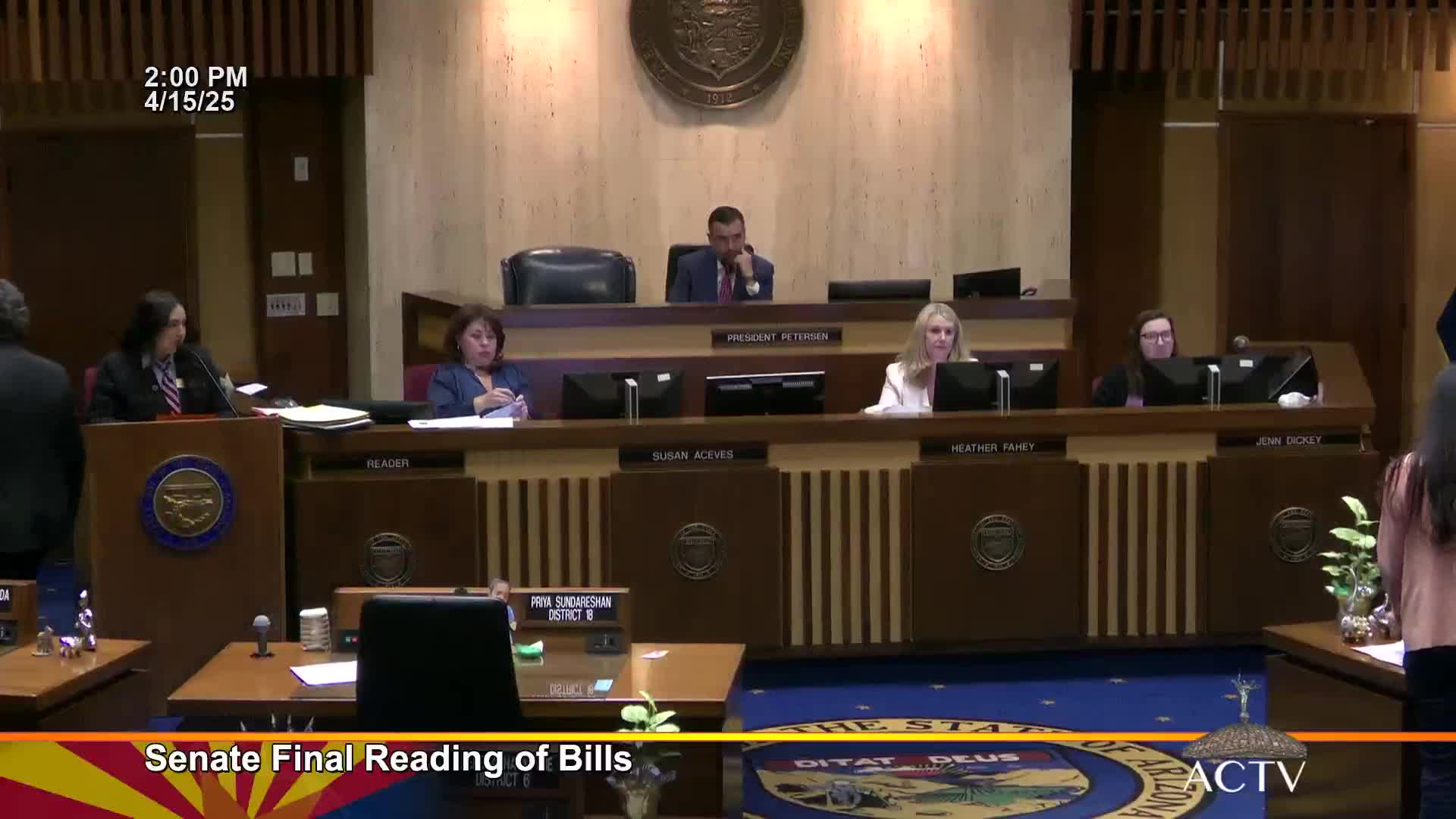Article not found
This article is no longer available. But don't worry—we've gathered other articles that discuss the same topic.
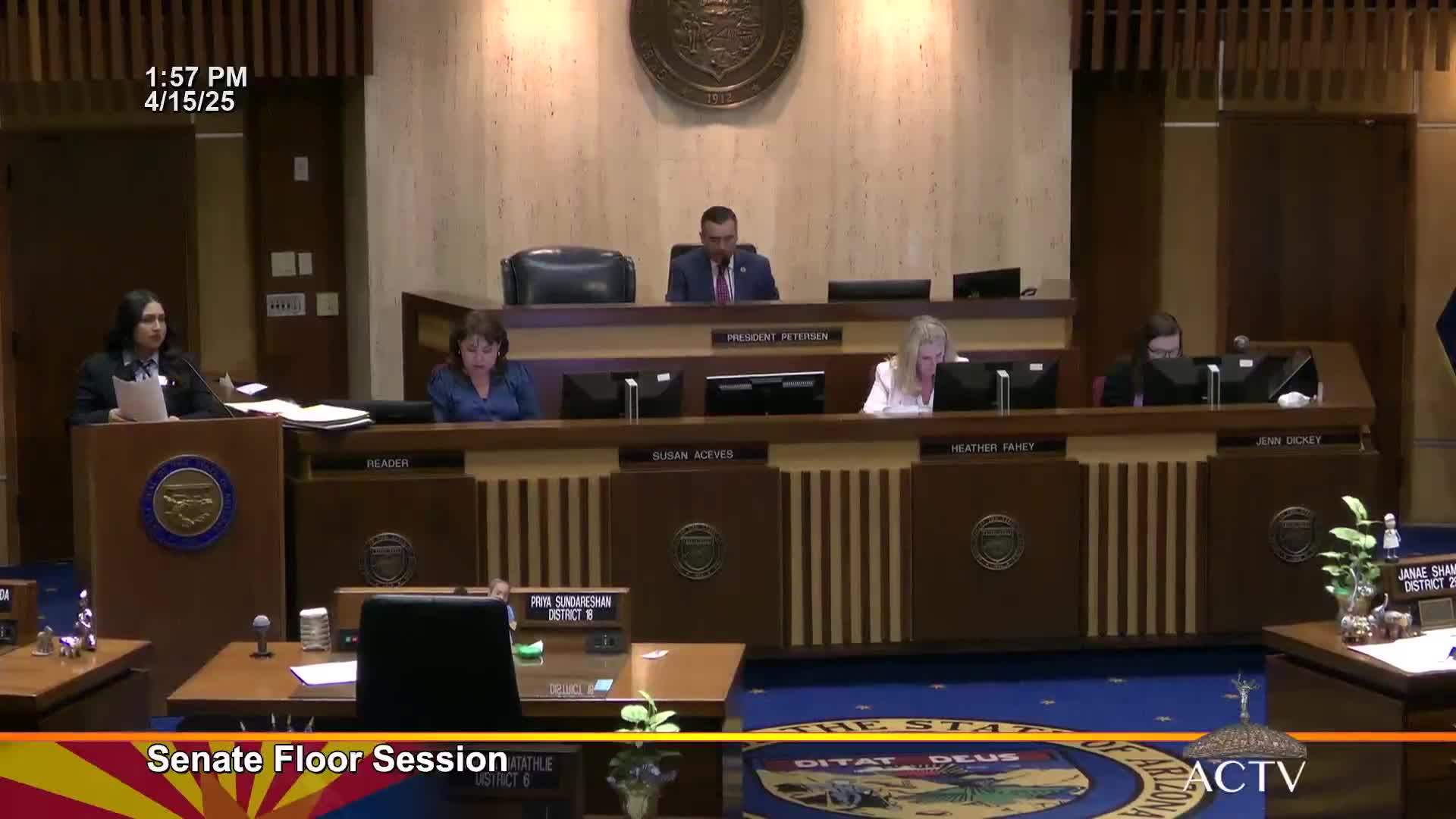
Votes at a glance: multiple bills cleared by the Arizona Senate on April 14
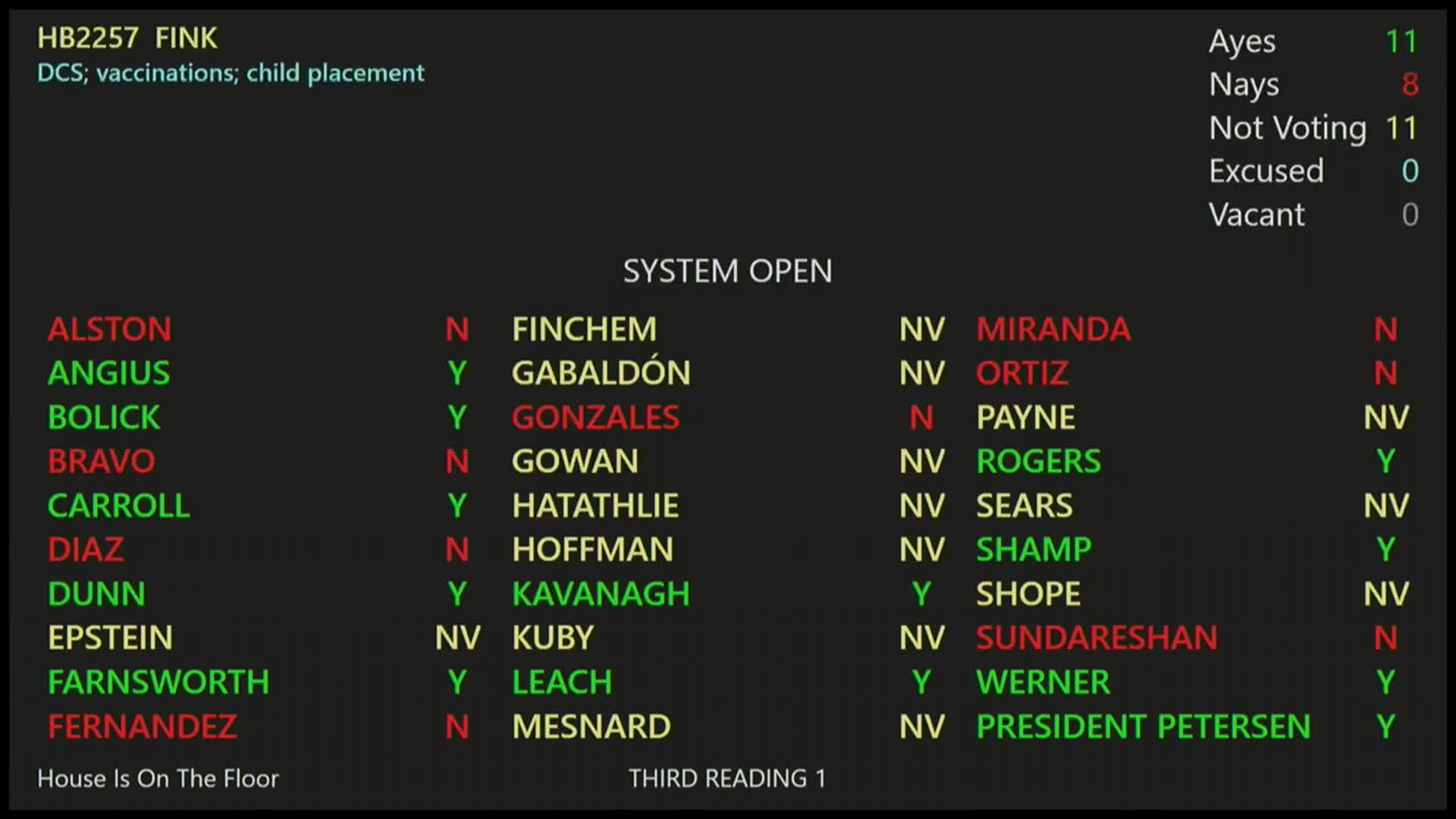
Senate approves bill limiting DCS placement rules for vaccinated households after safety debate
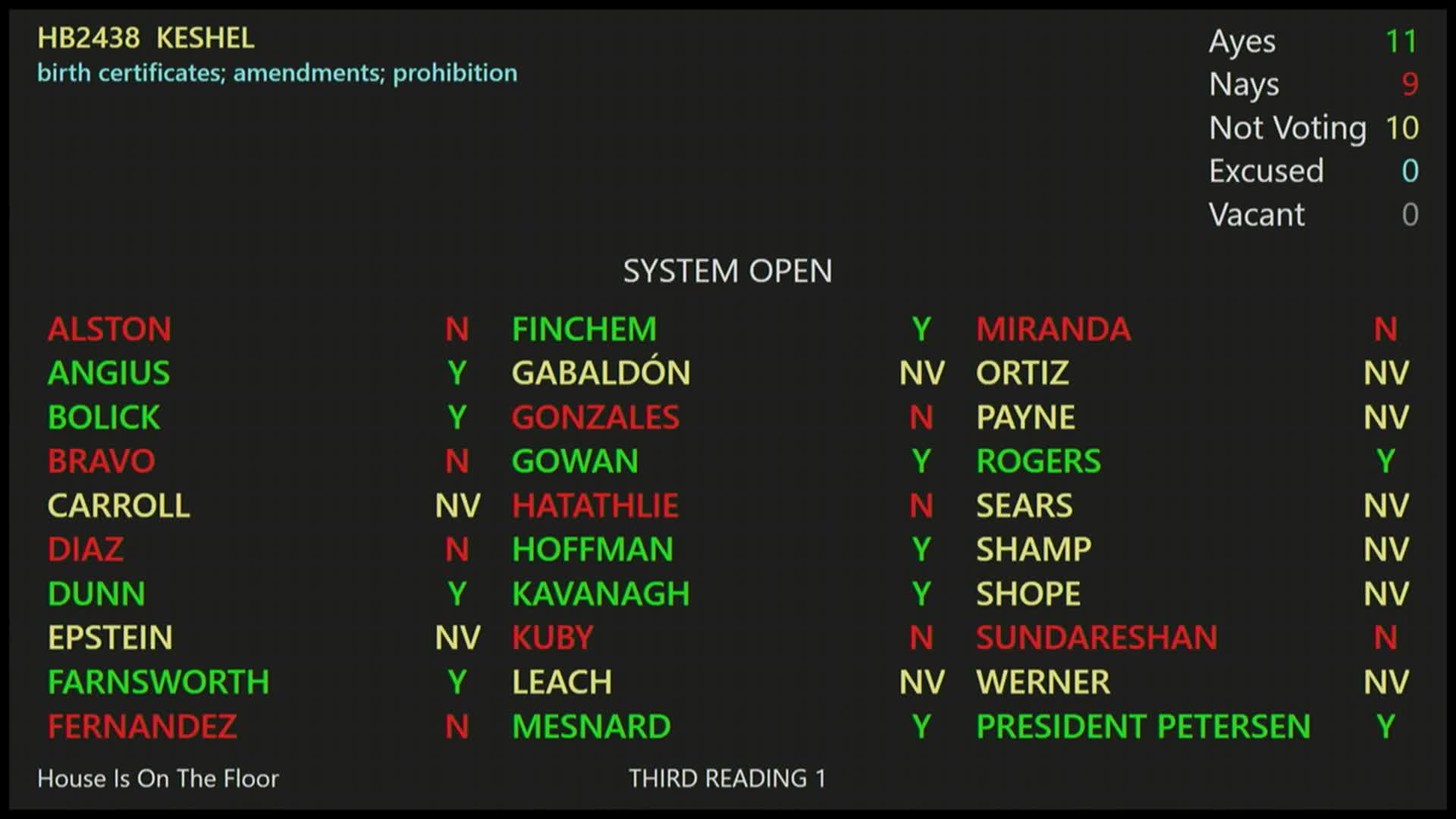
Senate passes bill restricting changes to birth-certificate gender markers after heated debate
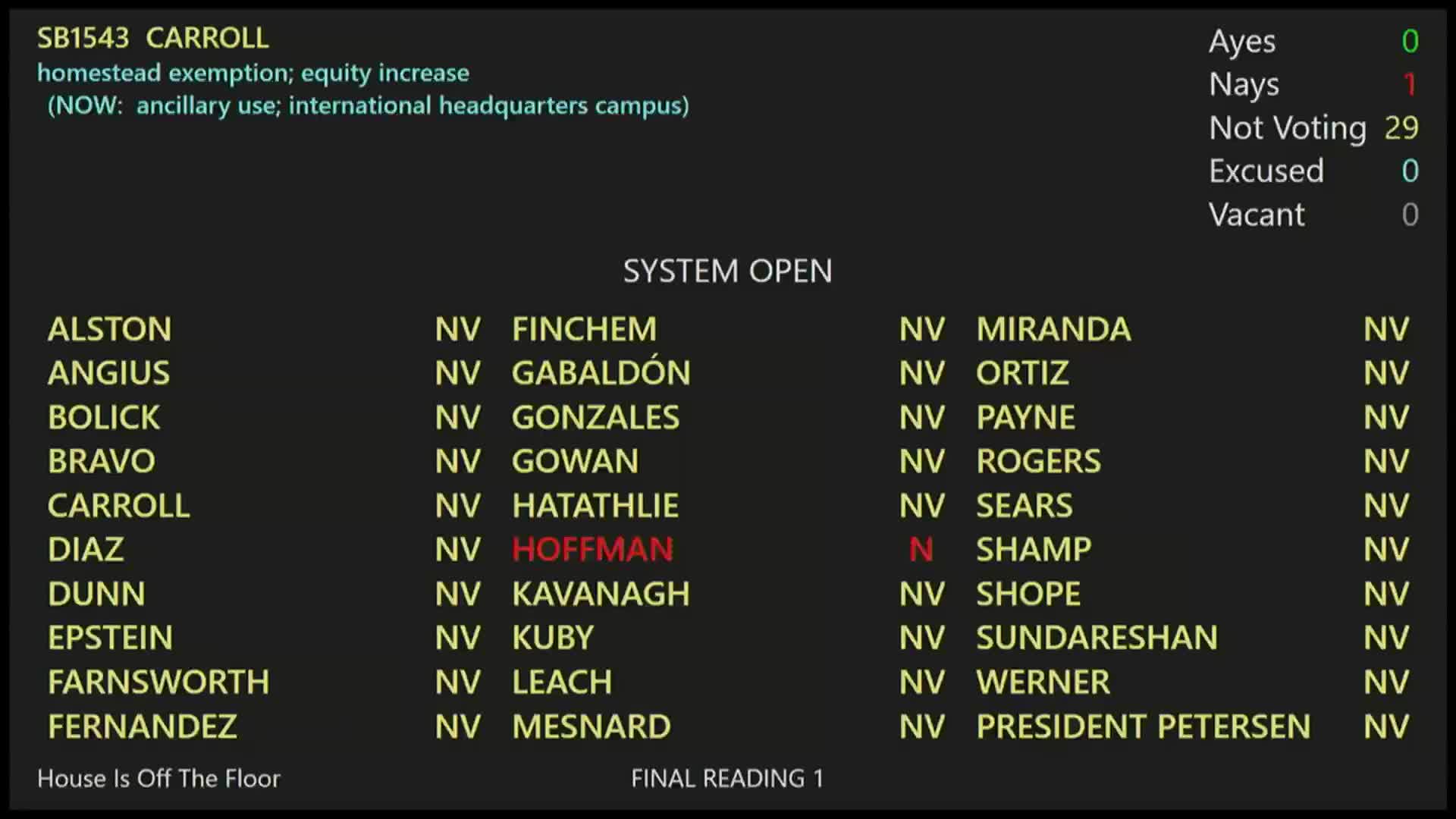
Senate passes bill shielding certain corporate headquarters from referendum after heated debate, 17-13
